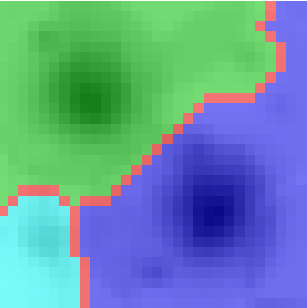Version 4.12 of the Insight Segmentation and Registration Toolkit Centers on Python Packages

Kitware distributes toolkit packages in multiple formats.
Kitware issued links to the 4.12 release of the Insight Segmentation and Registration Toolkit (ITK) on the ITK website. Python wheel packages served as a pillar of the release. With Python bindings, developers can use all ITK functions in Python.
“Accessible computational methods enable researchers to reproduce advanced algorithms and apply them to novel domains,” said Matthew McCormick, a principal engineer at Kitware and a developer of ITK. “Wheel packages can be quickly installed, and the Python programming language can be picked up without formal computer science training.”
Filters formed another cornerstone of the release. They furnished ITK with algorithms that improve the robustness and accuracy of image segmentation. The MorphologicalWatershed filter, for example, uses concepts from geophysics to section images. Two other filters calculate strain tensors on tissue. In May, McCormick wrote an article on these filters in the Insight Journal.

“Advanced, high-performance, N-dimensional algorithms are hallmarks of ITK,” McCormick said. “New filters for segmentation and registration complement the existing library well.”
Filter maintenance allowed ITK to display histograms of measurements more rapidly and to model shapes through principal component analysis with less memory consumption. In addition, the 4.12 release established more support for Microsoft Visual Studio, Clang and the GNU Compiler Collection. Code coverage also climbed to surpass the record that version 4.11 set. Kitware summarized code coverage and other aspects of the 4.12 release on its blog.
The company played an instrumental role in the launch of ITK in 1999. Kitware now leads the development of the toolkit and its documentation, which includes “The ITK Software Guide” book series. Kitware worked with the ITK community to amend the series for the 4.12 release. To learn more, please contact kitware(at)kitware(dot)com.
While the material discussed here is part of a community effort, at Kitware, this material is based upon work funded, in whole, by a $241,323 award from the National Library of Medicine.